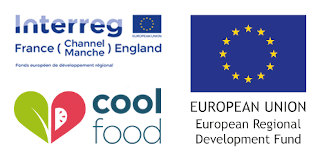
There are some simple things we can do to get more out of our bread, or even just to preserve it for longer, in order to reduce food waste and save money. Here are some top tips:
Buy with thought
• Why not plan your meals for the week, thinking about what ingredients you have available and what needs using up? Think about how leftovers might be used the next day or eaten for lunch.
• Bake your own bread. You’re less likely to waste slices if you’ve spent time and energy baking it yourself!
• Don’t buy pre-sliced bread. Sliced bread has a greater surface area exposed to the air, so is more likely to go stale quicker.
Store your bread wisely
• Remember to store your bread in a clean, dry place out of direct sunlight to ensure it lasts longer.
• If you know it usually takes you a while to finish a loaf then freeze half upon purchase to eat at a later date.
• Rather than slicing the bread from one of the ends, you can slice into the centre of the bread and then push the two ends together after removing your slices, to act as a barrier to air.
Use up leftovers
• You can give stale bread a new lease of life by sprinkling it with water and then warming it lightly in the oven.
• Leftover crusts can be blitzed into breadcrumbs – perfect for making homemade fishcakes, bread sauce and stuffing.
• Try out some new recipes! Stale bread is perfect for making bread and butter pudding, summer pudding, croutons or it can even be baked in the oven and then mixed into soup or stews to make meals more ‘hearty!’
Dispose of responsibly
• If it’s already too late to revive your bread and it’s gone mouldy, then add it to your compost heap rather than sending it to landfill.
• Reuse any plastic packaging where you can.
- Don’t waste bread
